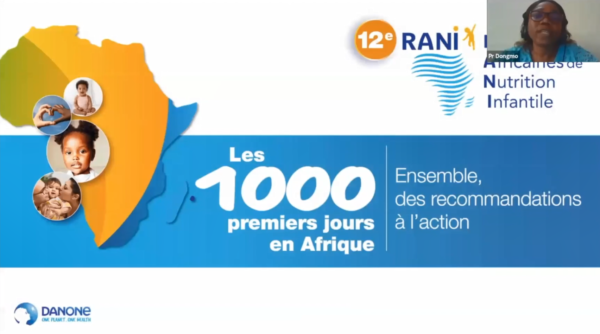Complementary feeding (introduction of (solids) foods) is a phase of gradual transition between the exclusive milk diet and a diversified adult diet.
The World Health Organization (WHO) defines complementary feeding as the process starting when breastmilk alone is no longer sufficient to meet the nutritional requirements of infants, and therefore other foods and liquids are needed, along with breastmilk1. The WHO recommends the introduction of nutritionally adequate and safe complementary (solid) foods at 6 months together with continued breastfeeding up to 2 years of age or beyond2
In Africa, it is observed that some beliefs and pre-conceived ideas influence parents to adopt improper feeding practices such as:
- Introducing solid food before 6 months
- Prematurely stop breastfeeding and feeding inappropriate substitutes (like cow’s milk)
This renders the infant at risk of malnutrition, and has consequences such as iron deficiency, dehydration, deficiencies in essential fatty acid intake and the risk of functional digestive disorders.
In order to address these practices, community-based approaches in educating families should be implemented to address the beliefs and preconceptions that exist among parents,, tendencies in preparing sweetened feed for infants, and influence mothers to continue breastfeeding or using appropriate substitutes up to 2 years and beyond.
Listen to the conference «Complementary feeding: recommendations and challenges » hosted during the 12th edition of RANI (African meeting of Infant Nutrition) the 11th of November 2021.
Speaker : Pr Dongmo Nguefack Félicitée, Maître de Conférences Agrégé de pédiatrie, Faculté de Médecine et des Sciences Biomédicales de l’Université de Yaoundé I, CAMEROUN
Click here to watch this video

References
- World Health Organization. Infant and Young Child Feeding: Model Chapter for Textbooks for Medical Students and Allied Health Professionals. Geneva: WHO Press (2009)
- OMS 2021 – Alimentation du nourrisson et du jeune enfant. https://www.who.int/fr/news-room/fact-sheets/detail/infant-and-young-child-feeding
BA22-089
